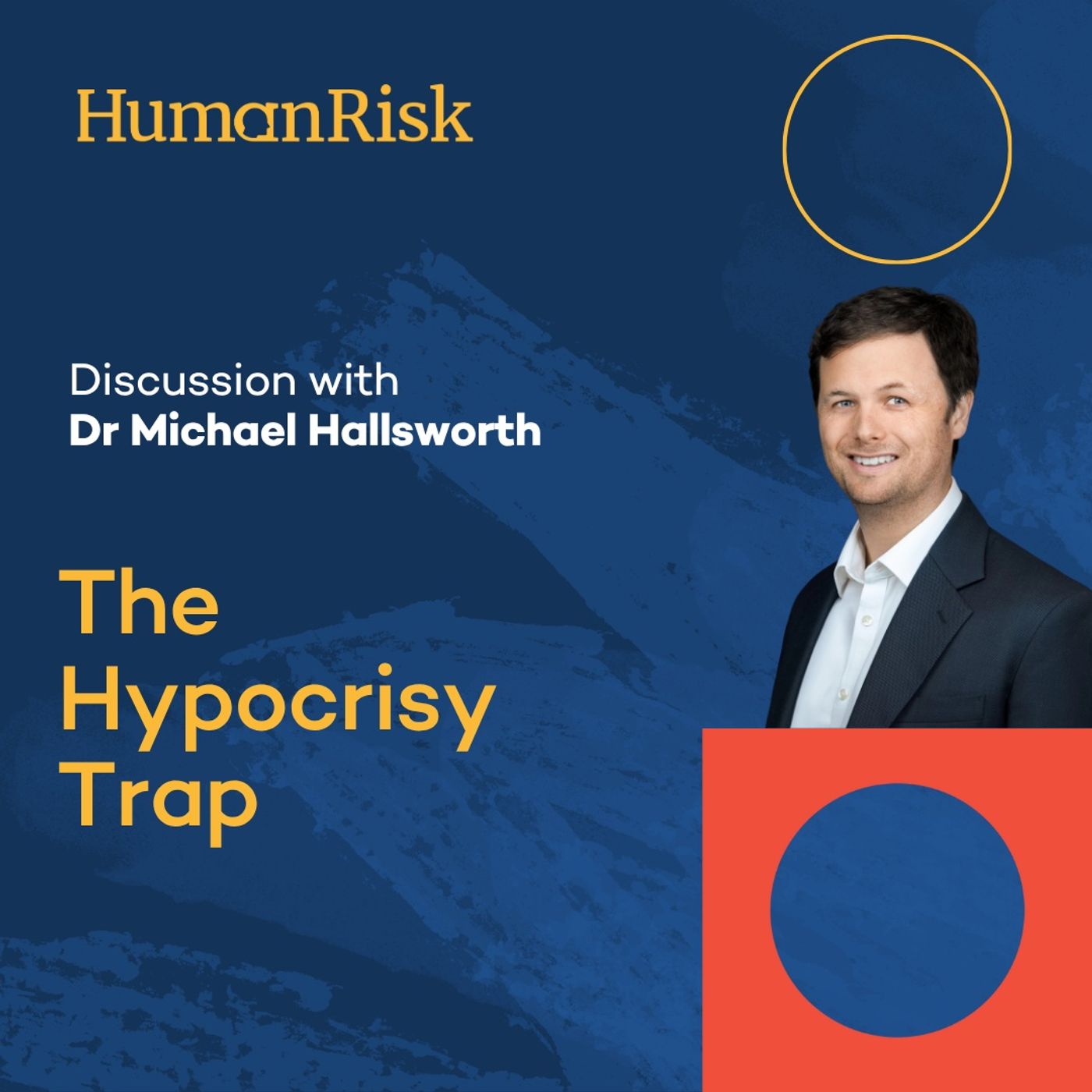Dr Michael Hallsworth on The Hypocrisy Trap

We all intuitively know that hypocrisy is a bad thing. But what if it isn’t a flaw, but a feature? But maybe the real problem isn’t hypocrisy, it’s how we think about it.
Episode Summary
On this episode, I'm talking to Dr Michael Hallsworth, a leading behavioural scientist and the author of The Hypocrisy Trap. We explore a topic that’s instantly recognisable but not often properly understood. Hypocrisy is something we’re quick to spot in others, slow to acknowledge in ourselves, and often design around as if it were avoidable or inherently wrong.
What Michael reveals — through personal stories, behavioural experiments, and a careful unpacking of what hypocrisy really means — is that our judgments of hypocrisy say more about us than about the people we’re criticising. In fact, hypocrisy isn’t just common; it’s structurally baked into how we navigate competing priorities, conflicting values and real-world trade-offs. And sometimes, paradoxically, a little hypocrisy might even be useful.
That makes it incredibly relevant to human risk. In compliance, ethics, and organisational culture, we tend to assume people should act consistently with what they believe, and we often penalise them when they don’t. But as Michael explains, this assumption can lead us to build systems that are brittle, punitive or out of touch with how people actually behave. This conversation challenges that frame and offers a more human — and more effective — way of thinking about inconsistency, trust and moral judgment.
Guest Biography - Michael Hallsworth
Dr Michael Hallsworth is Chief Behavioural Scientist at the Behavioural Insights Team (BIT), where he applies behavioural science to policy, organisational design and real‑world behavioural change. He describes himself as someone “helping people apply behavioural science to real‑world problems” and is the author of The Hypocrisy Trap: How Changing What We Criticise Can Improve Our Lives.
At BIT, Michael has led numerous projects spanning government and private sector domains, bridging rigorous academic research with operational behavioural insight. His work is characterised by practical translation of behavioural science and an upfront acknowledgement of human complexity — the grey zones rather than the simple binaries.
His new book brings this lens to the topic of hypocrisy, exploring how our judgments of double standards shape behaviour, institutions and trust in counter‑intuitive ways.
AI-Generated Timestamp Summary
[00:00:00] Intro and framing of hypocrisy as a human behavioural risk
[00:01:00] Why hypocrisy runs deeper than just “saying one thing and doing another”
[00:02:00] Discussion of how organisations treat moral consistency — and the limitations of that approach
[00:03:00] Michael’s background, BIT and the genesis of his book
[00:04:00] Defining hypocrisy: the three‑part structure
[00:06:00] The two‑fold meaning: false image vs double standards
[00:07:00] Michael’s personal story with his daughter + the context of “PartyGate”
[00:09:00] Historical roots: Freud’s view on civilisation and hypocrisy
[00:11:00] Why hypocrisy is a social judgement rather than purely behavioural
[00:13:00] When calling out hypocrisy becomes counterproductive in change efforts
[00:15:00] Real‑world examples: politics, business, everyday life
[00:17:00] The phenomenon of ‘do‑gooder derogation’ and why consistent people make us uneasy
[00:20:00] Hypocrisy as a strategic accusation in social media and organisational life
[00:22:00] The behavioural science of induced hypocrisy and what it tells us about change
[00:25:00] Honest vs. relatable hypocrisy: shifting the narrative
[00:28:00] Michael outlines three categories for navigating hypocrisy
[00:30:00] His reflections on writing the book and the surprises he uncovered
[00:34:00] Balancing moral integrity with public perception and stakeholder expectations
[00:36:00] Hypocrisy in corporate ESG: the tension between expectation and action
[00:39:00] Managing contradictions among stakeholders: the inevitable trade‑offs
[00:41:00] Experiment results: private hypocrisy and moral judge
[00:44:00] The paradox: why we prefer people who are ‘inconsistent but principled’ over ‘consistent and bland’
[00:46:00] Authenticity vs inauthentic leadership — and the hypocrisy dimension
[00:48:00] Is this a practical manual for “how to do hypocrisy well”?
[00:51:00] Final reflections: hypocrisy isn’t always about morality—sometimes it’s about signalling, trust and change
[00:54:00] Michael’s hope for what the book can achieve and closing thoughts
[00:57:00] Wrap‑up, thanks and behavioural nudge for the listener
Links
Michael's website - https://www.michaelhallsworth.com/
The Hypocrisy Trap – https://www.thehypocrisytrap.com/
Behavioural Insights Team - https://www.bi.team/
Michael's IT profile – https://www.bi.team/people/michael-hallsworth/
'Partygate' explainer - https://www.bbc.co.uk/news/uk-politics-59952395



















